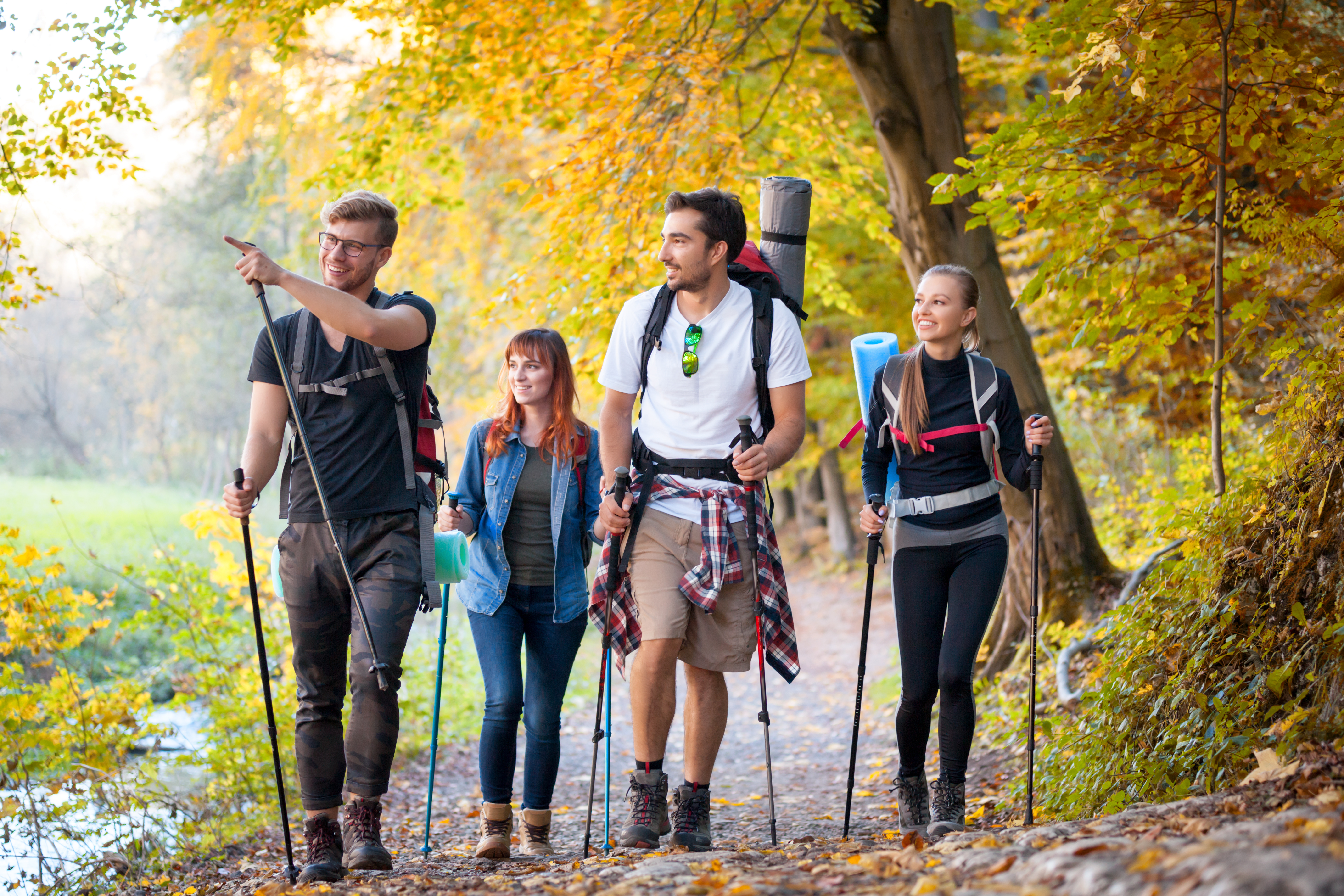10 Eco-Friendly Travel Ideas Defining 2025
As we edge closer to 2025, the call to protect our planet grows louder, urging us to adopt more sustainable lifestyles. This transformation is not just about reducing our carbon footprint but also about enriching our experiences with nature. Eco-friendly adventures offer a unique blend of thrill and responsibility, allowing travelers to explore the world while preserving it for future generations. This article delves into 10 inspiring ways you can shape your eco-friendly adventures in 2025, providing a roadmap to travel more sustainably and meaningfully. By adopting these practices, we can contribute to a healthier planet while enjoying the wonders it has to offer. Eco-friendly adventures offer a deeper connection with nature, fostering a sense of stewardship and appreciation for the world around us.
1. Sustainable Transportation: The Green Way to Travel

Transportation is one of the most significant contributors to carbon emissions in the travel industry. To shape eco-friendly adventures, it is essential to prioritize sustainable transportation options. In 2025, electric and hybrid vehicles are expected to become more accessible and affordable, making them a viable choice for travelers seeking to reduce their carbon footprint. Opting for trains over planes for shorter distances can also significantly lower emissions, as trains are generally more energy-efficient and produce fewer pollutants. Public transportation is another eco-friendly option that allows travelers to explore destinations without contributing to traffic congestion and air pollution. Many cities worldwide are investing in clean energy buses and expanding their metro systems to offer greener alternatives to traditional car travel. By choosing public transportation, travelers can immerse themselves in the local culture while supporting sustainable urban development. Additionally, cycling and walking are not only environmentally friendly but also provide a more intimate way to experience a destination. Carpooling and ride-sharing services are also gaining popularity as sustainable transportation options. By sharing rides with others, travelers can reduce the number of vehicles on the road, thereby decreasing emissions and conserving energy. Many ride-sharing companies are now offering electric vehicle options, further enhancing their sustainability credentials. As we move towards 2025, embracing these sustainable transportation methods will be crucial in shaping eco-friendly adventures that are both enjoyable and responsible.
2. Eco-Conscious Accommodation: Staying Green on the Go

Choosing eco-friendly accommodation is a vital step in shaping sustainable travel adventures. In 2025, the hospitality industry is expected to continue its shift towards sustainability, with more hotels and lodges adopting green practices. Eco-conscious accommodations focus on minimizing their environmental impact through energy efficiency, waste reduction, and water conservation. Many establishments are now powered by renewable energy sources such as solar or wind, and they implement energy-saving technologies like smart lighting and temperature controls. Water conservation is another critical aspect of eco-friendly accommodation. Hotels are increasingly installing low-flow fixtures, reusing greywater for irrigation, and encouraging guests to reuse towels and linens. These practices not only conserve water but also reduce the amount of wastewater generated. Waste reduction is also a priority, with many accommodations implementing recycling programs, composting organic waste, and eliminating single-use plastics. By staying at eco-conscious accommodations, travelers can enjoy a comfortable stay while supporting sustainable practices. The rise of eco-lodges and sustainable resorts offers travelers unique opportunities to immerse themselves in nature while minimizing their environmental impact. These accommodations are often located in remote areas, providing guests with breathtaking views and access to pristine landscapes. By choosing eco-conscious accommodations, travelers can contribute to the preservation of natural habitats and support local communities that rely on sustainable tourism. As we shape our eco-friendly adventures in 2025, prioritizing green accommodation will be an essential component of responsible travel.
3. Responsible Wildlife Tourism: Protecting Nature's Wonders

Wildlife tourism offers travelers the chance to witness the beauty of nature up close, but it also comes with the responsibility to protect the animals and their habitats. In 2025, responsible wildlife tourism will be a cornerstone of eco-friendly adventures, emphasizing conservation and ethical interactions with wildlife. This approach involves choosing tour operators and experiences that prioritize animal welfare and habitat preservation, ensuring that tourism activities do not harm the creatures or disrupt their natural behaviors. Education is a key element of responsible wildlife tourism. Travelers are encouraged to learn about the species they encounter and the challenges they face, fostering a deeper appreciation and understanding of the natural world. Many wildlife tours now include educational components, such as guided nature walks and conservation talks, to enhance the travel experience while promoting awareness. By supporting organizations that contribute to wildlife conservation efforts, travelers can help protect endangered species and their ecosystems. Avoiding activities that exploit animals is crucial in shaping responsible wildlife tourism. This includes steering clear of attractions that involve captive animals for entertainment, such as elephant rides or dolphin shows. Instead, travelers can opt for experiences that allow them to observe animals in their natural habitats, such as safaris or birdwatching tours. By making ethical choices, travelers can enjoy unforgettable wildlife experiences while contributing to the conservation of our planet's biodiversity.
4. Supporting Local Communities: Empowering Through Travel

Eco-friendly adventures in 2025 will increasingly focus on supporting local communities, ensuring that tourism benefits the people who live in the destinations we visit. This involves choosing locally-owned businesses, such as restaurants, shops, and tour operators, which helps to boost the local economy and create jobs. By spending money within the community, travelers can contribute to sustainable development and the preservation of cultural heritage. Community-based tourism is a powerful way to support local communities while enjoying authentic travel experiences. This approach involves engaging with local residents and participating in activities that showcase their traditions and way of life. Travelers can take part in workshops, cultural tours, and homestays, gaining insights into the community's history and values. By fostering meaningful connections with locals, travelers can enrich their adventures while promoting cross-cultural understanding and respect. Voluntourism is another avenue for supporting local communities through travel. This involves volunteering time and skills to assist with community projects, such as building schools, teaching English, or participating in conservation efforts. By contributing to meaningful initiatives, travelers can make a positive impact on the communities they visit while gaining a deeper appreciation for the challenges and triumphs of local residents. As we shape our eco-friendly adventures in 2025, supporting local communities will be an essential component of responsible travel.
5. Zero-Waste Travel: Reducing Our Environmental Footprint

Zero-waste travel is an emerging trend that encourages travelers to minimize their waste production and environmental impact. This approach involves planning trips with sustainability in mind, focusing on reducing, reusing, and recycling wherever possible. In 2025, zero-waste travel will be a key component of eco-friendly adventures, challenging travelers to adopt more sustainable habits and make conscious choices throughout their journeys. One of the primary strategies for zero-waste travel is to pack light and smart. Travelers are encouraged to bring reusable items such as water bottles, shopping bags, and utensils, reducing the need for single-use plastics. By packing versatile clothing and toiletries, travelers can minimize the amount of luggage they carry, which can also reduce emissions associated with transportation. Additionally, choosing products with minimal packaging and opting for digital tickets and guides can help reduce waste. While on the road, travelers can further reduce their environmental footprint by supporting businesses that prioritize sustainability. This includes dining at restaurants that source local and organic ingredients, shopping at markets that offer package-free goods, and staying at accommodations that implement waste-reduction practices. By adopting a zero-waste mindset, travelers can enjoy eco-friendly adventures in 2025 that are both fulfilling and environmentally responsible.
6. Eco-Friendly Activities: Enjoying Nature Responsibly

Eco-friendly activities are at the heart of sustainable travel, offering travelers the opportunity to connect with nature while minimizing their environmental impact. In 2025, these activities will play a crucial role in shaping eco-friendly adventures, emphasizing low-impact recreation and conservation. From hiking and kayaking to wildlife photography and stargazing, there are countless ways to enjoy the great outdoors responsibly. Hiking is a popular eco-friendly activity that allows travelers to explore natural landscapes at their own pace. By sticking to designated trails and practicing Leave No Trace principles, hikers can minimize their impact on the environment and preserve the beauty of the wilderness for future generations. Kayaking and canoeing offer another way to experience nature, providing a peaceful and sustainable means of exploring rivers, lakes, and coastal areas. These activities require minimal equipment and produce no emissions, making them ideal for eco-friendly adventures. Wildlife photography and birdwatching are also excellent ways to enjoy nature without disturbing the environment. By observing animals from a distance and using ethical photography practices, travelers can capture the beauty of wildlife while respecting their habitats. Stargazing provides a unique opportunity to connect with the night sky, offering a glimpse into the wonders of the universe. As we shape our eco-friendly adventures in 2025, embracing these activities will allow us to enjoy nature responsibly and sustainably.
7. Sustainable Cuisine: Savoring Local and Organic Flavors

Food is an integral part of travel, offering insights into a destination's culture and traditions. In 2025, sustainable cuisine will be a key component of eco-friendly adventures, emphasizing local and organic ingredients, farm-to-table dining, and plant-based options. By choosing sustainable dining experiences, travelers can savor delicious flavors while supporting environmentally responsible practices. Farm-to-table dining is a growing trend that focuses on sourcing ingredients directly from local farms and producers. This approach reduces the carbon footprint associated with food transportation and supports local economies. Many restaurants are now offering seasonal menus that highlight fresh, locally-sourced ingredients, providing travelers with a taste of the region's culinary heritage. By choosing farm-to-table dining experiences, travelers can enjoy sustainable cuisine while contributing to the preservation of traditional food practices. Embracing plant-based options is another way to enjoy sustainable cuisine. Plant-based diets have a lower environmental impact compared to diets that rely heavily on meat and dairy, as they require fewer resources and produce fewer emissions. Many destinations now offer a diverse range of plant-based dishes, allowing travelers to explore new flavors and culinary traditions. As we shape our eco-friendly adventures in 2025, prioritizing sustainable cuisine will enhance our travel experiences while promoting environmental stewardship.
8. Conservation Volunteering: Giving Back to Nature

Conservation volunteering offers travelers the chance to make a positive impact on the environment while enjoying meaningful travel experiences. In 2025, this form of voluntourism will be an essential component of eco-friendly adventures, providing opportunities to support conservation efforts and protect natural habitats. By participating in conservation projects, travelers can contribute to the preservation of biodiversity and the health of our planet. There are numerous conservation volunteering opportunities available, ranging from wildlife monitoring and habitat restoration to beach cleanups and reforestation projects. These initiatives often involve collaboration with local communities and conservation organizations, allowing travelers to work alongside experts and gain insights into environmental challenges and solutions. By volunteering their time and skills, travelers can contribute to meaningful conservation efforts and leave a positive legacy in the destinations they visit. Conservation volunteering also offers personal benefits, providing travelers with a sense of purpose and fulfillment. By engaging in hands-on activities and witnessing the impact of their efforts, volunteers can develop a deeper connection with nature and a greater appreciation for the importance of environmental stewardship. As we shape our eco-friendly adventures in 2025, embracing conservation volunteering will allow us to give back to nature and contribute to a healthier planet.
9. Cultural Preservation: Respecting and Celebrating Heritage

Travel offers the opportunity to explore diverse cultures and traditions, but it also comes with the responsibility to respect and preserve cultural heritage. In 2025, cultural preservation will be a vital aspect of eco-friendly adventures, emphasizing respectful engagement with local communities and the protection of cultural sites. By prioritizing cultural preservation, travelers can enrich their experiences while contributing to the safeguarding of our shared heritage. Respectful engagement involves approaching cultural experiences with an open mind and a willingness to learn. Travelers are encouraged to participate in cultural activities, such as traditional crafts, music, and dance, while respecting local customs and etiquette. By fostering genuine connections with locals, travelers can gain insights into the community's history and values and promote cross-cultural understanding and respect. Protecting cultural sites is another important aspect of cultural preservation. This involves visiting heritage sites responsibly, adhering to guidelines, and supporting efforts to conserve and restore these locations. Many destinations now offer guided tours that provide historical context and highlight the significance of cultural sites, enhancing the travel experience while promoting awareness. As we shape our eco-friendly adventures in 2025, prioritizing cultural preservation will allow us to celebrate and protect the rich tapestry of human heritage.
10. Digital Detox: Reconnecting with Nature and Ourselves

In an increasingly connected world, taking a digital detox can offer a refreshing escape and a chance to reconnect with nature and ourselves. In 2025, digital detoxing will be an integral part of eco-friendly adventures, encouraging travelers to unplug from technology and immerse themselves in the natural world. By embracing this practice, travelers can enhance their well-being and enjoy more mindful and meaningful travel experiences. A digital detox involves setting aside devices such as smartphones, tablets, and laptops, allowing travelers to focus on the present moment and their surroundings. This practice can reduce stress and improve mental clarity, providing a sense of peace and relaxation. By disconnecting from technology, travelers can engage more fully with their environment, fostering a deeper connection with nature and the people around them. Many destinations now offer digital detox retreats, providing travelers with the opportunity to unwind in tranquil settings and participate in activities such as meditation, yoga, and nature walks. These retreats often emphasize mindfulness and self-reflection, allowing travelers to recharge and gain a renewed sense of purpose. As we shape our eco-friendly adventures in 2025, embracing digital detoxing will enable us to reconnect with nature and ourselves, enhancing our travel experiences and overall well-being.
A Commitment to Sustainable Adventures

As we look towards 2025 and beyond, it is clear that shaping eco-friendly adventures is not just a choice but a responsibility. By embracing sustainable practices and prioritizing environmental stewardship, we can enjoy meaningful travel experiences while contributing to the health of our planet. The eleven inspiring ways outlined in this article provide a roadmap for travelers seeking to embark on eco-friendly adventures, offering strategies to minimize environmental impact, support local communities, and protect cultural and natural heritage. Sustainable travel is a journey, not a destination. It requires ongoing commitment and a willingness to adapt and learn. By making conscious choices and adopting sustainable habits, travelers can play a vital role in the global effort to protect our planet and its inhabitants. As we shape our eco-friendly adventures in 2025, let us embrace the opportunity to travel with purpose and passion, leaving a positive legacy for future generations. Eco-friendly adventures offer a unique blend of thrill and responsibility, allowing us to explore the world while preserving it for future generations. By prioritizing sustainability, we can enhance our travel experiences and contribute to a healthier planet. As we embark on this journey, let us commit to leaving a positive mark on the places we visit, shaping a brighter future for our planet and its people.








